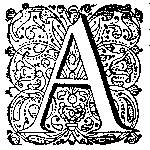Found through Translation: Female Translators and the Construction of ‘Relational Authority’ in the Eighteenth-Century Dutch Republic
DOI:
https://doi.org/10.18352/emlc.90Keywords:
Dutch women writers, relational authority, translation, self-representation, authorship constructionAbstract
‘It is a pity that not someone like Christina Leonora de Neufville found the time to take on that work’, translator and author Elizabeth Wolff stated when she set eyes on one of the Dutch translations of Voltaire’s Mahomet (1741) in October 1770. Wolff’s comments on these translations provide fascinating insights into some of the underlying dynamics of the eighteenth-century Dutch literary marketplace, where translations made up an important part of the literary production. As recent studies in the field of translation studies have stressed, early modern translations seldom proved to be straightforward renditions of the original but provided eager and upcoming authors to make their claim to literary fame as the translator of more renowned authors. Translating in particular turned out to be a unique opportunity for many early modern European women writers, who often still struggled to establish their names. The case of the Dutch Republic, with its advanced print culture and strongly internationally oriented book market, however, remains hitherto understudied.
This article examines the role translation played in the careers of three Dutch women writers by showing how they used their role as translators to establish and renegotiate their name and (literary) authority, often by interacting directly with the reputation of the translated author. We will use the concept of ‘relational authority’ to address the ways in which Wolff herself, as well as fellow authors Christina Leonora de Neufville and Margaretha Cambon-Van der Werken, used translation as a textual platform to convey their intellectual posture and voice. Our analysis will focus specifically on both the textual and visual dimension of their public image-building by considering how ‘relational’ representations appear in paratexts and portraits respectively.
Downloads

Published
Issue
Section
License
Copyright (c) 2019 Lieke van Deinsen, Beatrijs Vanacker

This work is licensed under a Creative Commons Attribution-NonCommercial 4.0 International License.





